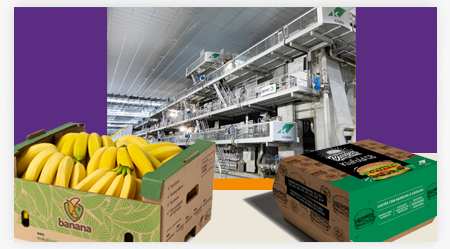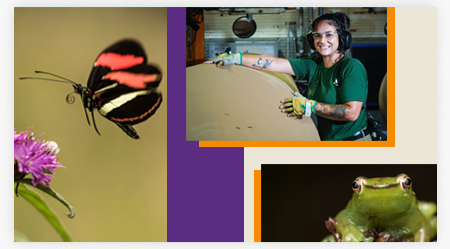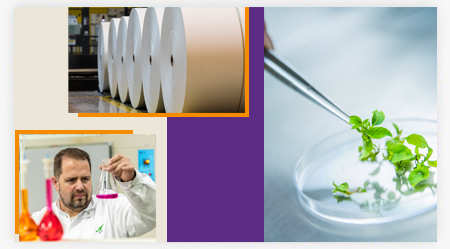The podcast "Caminhos do Puma" and the book "Novo Caminhos do Puma," released in 2023, tell the story of the Puma II Project, presenting the context, studies, engineering, innovation, and environmental and social sustainability of the venture.
Prosperity for people
Commitment to local development
In the communities where it operates, Klabin maintains an economic, social, and environmental agenda, with guidelines and goals to minimize any impacts associated with its operations. Additionally, projects and initiatives focusing on local development, citizenship, environmental education, and culture constitute the Company's social and environmental investment platform.
Community acceptance survey
The actions that contribute to achieving Klabin's Sustainable Development Goals (KODS) are reflected in the results of the annual Community Acceptance Survey, as well as in the progress of the Company's social programs.
For two consecutive years, Klabin has exceeded the target indicator of 80% in the survey, achieving 81.4% acceptance in the communities where it operates in 2023. The indicator reflects the average results of operations in Paraná (12 municipalities), Santa Catarina (9 municipalities), the region of Angatuba in the interior of São Paulo (5 municipalities), Rio Negro (PR), Paranaguá (PR), and Goiana (PE).
The survey indicator corresponds to the average of eight dimensions: perception of impacts, economic development, environmental preservation, job creation, commitment, image, social stimulation, and business promotion.
Despite the reduction in acceptance in some locations, the indices remain good and, overall, above the KODS target of 80%.
Impact management and engagement
Klabin works to prevent or reduce the negative impacts of its forestry and industrial operations, such as dust, unsafe driver behavior, poor road conditions, odors, and factory noise, among others.
One of the main issues raised by communities is the dust generated by truck traffic in municipalities with forestry operations. The impact is monitored through the dust complaint index per kilometer driven in communities (total complaints received divided by the total kilometers driven in the communities during the year). Even with the progress of the results, the Company is challenged by the growth of its operations, which also expands the number of municipalities and communities impacted by its operation.
Six examples of mitigation measures:
-
road wetting;
-
soil coating with successive applications of aggregate and bituminous binder;
-
preliminary analysis for optimizing transportation routes with community bypass;
-
spot asphalting;
-
installation of individual sprinklers in isolated properties.
Dust complaint index
In 2023, there were 135 complaints about dust recorded from 34 communities neighboring the wood transport routes in 21 municipalities where Klabin had forestry operations, in Paraná and São Paulo. The number of complaints was higher in December, a month marked by an intense drought period in the regions with ongoing forestry operations. Although the indicator changed from 0.9 complaints/km on dirt roads to 1.0 complaints/km from 2022 to 2023, considering all the mitigating actions applied to control this impact since 2017, there has already been an 85% reduction in this type of complaint in the communities where the company operates.
Throughout the year, there was an average movement of 696 trucks over an average transport distance of 157 km. With the start of operations, the movement increased to 720 trucks over an average transport distance of 164 km.
Klabin Social Demands
The Klabin Social Demands System (KDS) underwent improvements and was expanded in 2023 to include the Company's operations in Piracicaba (SP), São Leopoldo (RS), and Horizonte (CE). The system, through which all employees can register stakeholder demands, whether received through official communication channels like "Fale com a Klabin" or in the field, follows internal guidelines for handling and an evaluation process for the submissions, with deadlines varying according to the severity of each of them.
Social risk management
In 2023, Klabin advanced actions resulting from the human rights due diligence analysis conducted in 2021, by developing the Social and Environmental Impact Matrix for forest areas in Paraná and Santa Catarina, as well as the Social Matrix in the Puma and Monte Alegre units, both located in Paraná.
A procedure was also implemented to assist non-owner workers and families residing in areas affected by the Company's forest expansion.

The Operational Procedure and the Livelihoods Recovery Plan are innovative practices in the sector.

The Procedure in Paraná served 65 families affected by physical and/or economic displacement.

The families received financial compensation and were invited to participate in the Matas Sociais program.
Click here:
Caminhos do Puma Podcast
Novos Caminhos do Puma Book
Support for communities affected by floods in
Rio Grande do Sul
InIn May 2024, Klabin took decisive action to aid the communities seriously impacted by the floods in Rio Grande do Sul. A total of BRL 1 million in financial resources was allocated to support institutions and funds aiding the affected population, alongside donations exceeding BRL 800,000 worth of essential supplies. The Company also donated paper bags and corrugated board boxes to accommodate donations to be sent to the region, as well as corrugated board sheets for use in shelters and accommodations. Moreover, the company covered the costs of 50 hours of equipment usage to assist in road-clearing efforts. Employees at the São Leopoldo Unit were offered a dedicated program providing psychological and financial assistance during this challenging time.
Traditional communities
Klabin identifies the presence of traditional communities (quilombolas, indigenous, and faxinalense communities) located within a 10 km radius of forest management areas and establishes measures to ensure the protection of their rights. This process is based on the principles of Free, Prior, and Informed Consent (FPIC), which ensures transparency in the relationship with communities and respect for their decisions, and the Company's refusal to operate in prospective areas that are adjacent to communities or that impact their ways of life.
The consistency of information and detailed knowledge about the presence of traditional peoples in the territory enable establishing proximity and qualified, sensitive dialogue with the communities, facilitating their more effective inclusion in the activities
developed by the Company.
Every two years, the forest base is reassessed concerning mapping, and if necessary, new communities are included within the delimited mapping area.
AUDITS
Reports undergo frequent audits by certification bodies and financing banks for expansion projects.
MAPPING
In 2023, 94 new traditional communities were identified: 27 quilombolas, 8 indigenous and 59 faxinalenses (wood gatherers).Of these, 53 communities have completed the characterization process.
Indigenous Environmental Basic Plan in Ortigueira
Developed as a requirement of the environmental license for the operations of the Puma Unit, the Indigenous Environmental Basic Plan (PBAI) includes initiatives with the Kaingang indigenous communities in the Queimadas and Tibagy-Mococa Indigenous Lands in Ortigueira, Paraná. Among the highlighted actions are the Audiovisual Training programs, Kaingang Ecological Corridors, and scholarships as part of the Kaingang Education and Culture Revitalization Program.
In 2023, the latter had 20 scholarship recipients with ongoing courses and three graduates. During the period, alignments and meetings were also held with the monitors chosen to participate in the programs, as well as workshops on agroforestry, ecological corridors, anthropic monitoring, physical environment monitoring, audiovisual training, and handicrafts.






